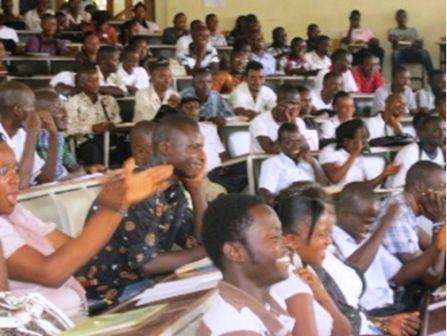
Ibrahim B. Koroma: Sierra Leone Telegraph: 18 April 2023:
Successive governments in Sierra Leone have made education a national development strategy priority but year after year, graduates face an uncertain and bleak future.
Last week marked another year of graduation for students who have successfully completed their studies in various disciplines and courses at the University of Sierra Leone, including FBC, IPAM and COMAHS.

The youth population in Sierra Leone is substantial, making up one third of the country’s total population. 70% of youths in Sierra Leone are currently underemployed or unemployed, and 50% illiterate and unskilled (UN, 2022).
Last week, Advocacy Network for Community Development (ANCD) in Sierra Leone, conducted a survey across six university campuses in Sierra Leone – FBC, IPAM, Njala, MMCET, Unimak and EBK University to find out how many students who graduated eleven months ago have found work.
Database of graduates produced in 2022 by the above campuses were used for the survey, using stratified random sampling to arrive at a population sample of 180 graduates (30 each per campus).
A response rate of 85 percent was achieved. Data was collected through online interviews via mobile phone calls and emails.
We asked the graduates, whether they have succeeded in finding employment since graduating from university in 2022. The result is staggering.
Almost twelve months after graduation, 7 out of every 10 graduates interviewed said they have not found a job.
2022 has been the hardest year for finding a job in Sierra Leone. Unemployment rate for new graduates in Sierra Leone hit a record high of 72%.
2023 is estimated to produce the worst unemployment figures in Sierra Leone as the economy continues to spiral downwards, with more businesses closing as a result of the huge cost of hyperinflation and worsening currency exchange rate.
Sierra Leone’s graduates (especially recent ones) should be ready to face a gloomy economic climate and begin to work on their strengths and weaknesses, as they explore employment options including self-employment.
Sierra Leone’s economy is in deep recession (even though undeclared by the state). Economic statistics published by local and international media reports show that inflation rose from 14.9% in 2018 to 42.7% in 2023.
The country’s currency – the Leone to Dollar exchange rate, has worsened from Le7,500 to the Dollar in 2018 to Le22,000 in 2023.
Sierra Leone’s external debt has risen from Le16 trillion in 2018 to Le40 trillion.
The government’s public sector wage bill has increased from Le1.9 trillion in 2018 to Le4.8 trillion.
About the author
Ibrahim B. Koroma is Executive Coordinator of Advocacy Network for Community Development (ANCD) in Sierra Leone.

Be the first to comment